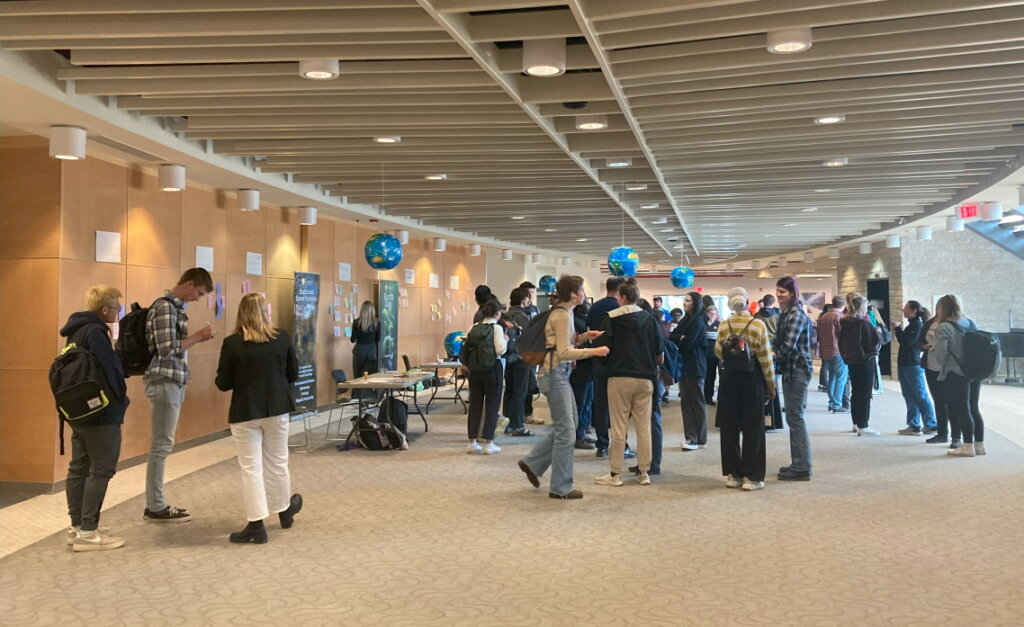Applications for this grant are now open until April 1, 2024. The link to the call for proposals is at the end of this article.

Students take part in Ambrose Seminary’s Earth Day event | Image by Ambrose University
The AAAS Dialogue on Science, Ethics, and Religion (DoSER) program is excited to announce a new focus on climate change science with the Climate Science in Theological Education (CSTE) project. This 3-year project, with initial funding from the David and Carol Myers Foundation, will provide grants for seminaries to meaningfully engage forefront climate science in their curriculum and activities. The goals are to equip current and future faith leaders to lead their communities in addressing climate change and to create an atmosphere in places of worship where climate science is considered relevant, complementary, and important to religious worldviews.
DoSER’s CSTE project will encourage participants to engage climate-related science in ways that are tailored to the specific student, faculty, alumni, and broader faith community. Activities funded through the grant can include capacity building, curriculum engagements, ministry-focused activities, or other program activities. Seminaries will host at least one enrichment activity or campus event that addresses theology and a climate-related science topic, such as environmental justice, air quality and health, extreme weather, food security, agriculture and soil science, marine science and ecology, climate migration, or similar topics. For the 2023 cohort, AAAS DoSER will select up to 14 schools to receive a grant of $15,000. Accredited theological education institutions that offer an MDiv program or equivalent for the training of faith leaders may apply.
The Climate Science in Theological Education project builds upon the success of DoSER’s previous Science for Seminaries: Integrating Science into Core Theological Education (Science for Seminaries) project (2016-2023), as well as a 2022 pilot project in incorporating climate science into seminary curricula. Science for Seminaries equipped religious leaders with a solid scientific foundation to answer their community’s questions about issues related to science and technology. Selected seminaries had to integrate science into at least two core courses and produce at least one campus-wide science-themed event. Science topics included astronomy, genetics and gene editing, evolution, public health, neuroscience and mental health, and more.
A recent study by the Pew Research Center indicated that over 60% of religiously affiliated Americans strongly believe that the Earth is sacred and that humans have a duty to protect and care for it. However, studies by the Association of the Theological Schools and Pew Research Center also found that many faith leaders feel uncomfortable or even avoid discussions about climate change in religious services because they do not have training in the sciences. DoSER’s CSTE initiative hopes to help future faith leaders feel better equipped to engage climate science within their ministry and communities.




